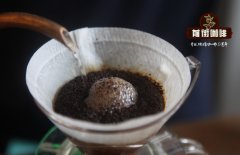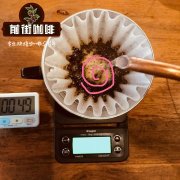Malawi rose summer double anaerobic fermentation processing flavor how Malawi rose summer from where

The Malawian rose variety was transplanted from the eugenic ancient native variety of Ethiopia to be planted in Malawi. Because of the influence of geographical environment and natural climate, the appearance and flavor of its coffee beans are very different from those of Ethiopia. This micro batch is sunburn rose summer, through the wine aroma double anaerobic secondary fermentation, showing a strong wine flavor, coffee aroma is very charming, rich and multi-layered taste, reverberation still drunk aroma is amazing It seems to be intoxicated in the dream coffee of the wine-scented country, and it is hard to forget it for a long time.
Flavor description: dry aroma-the wine is full of praise, rich fruit aromas, fascinating aromas of aged red wine, plums, berries and raisins, leading to the sweetest taste. Because the treatment process is very meticulous, elegant, well-balanced, fruity, full of aroma Sipping natural berries, red wine, bananas, melons, apples, caramelized taste, well-preserved ripe fruit sweet, like aged oak to preserve whisky flavor of coffee.
Country: Malawi (Malawi)
Producing area: Misuku
Processing field Ruluga
Variety: rose summer (Geisha)
Altitude: 2000 m
Treatment: double anaerobic secondary fermentation of wine flavor
At the beginning of this year, Malawian coffee merchants specially brought four very special anaerobic treated coffee beans, which have a strong aroma to the nostrils. The flavor and aroma of the four beans are different, and their technology is similar to the art of wine-making. This batch of sun roses, summer drunken sweet wine, double anaerobic secondary fermentation 0904 new batch, is from Ethiopia's eugenic ancient varieties transplanted to Malawi, because of the geographical environment and natural climate. The appearance and flavor of its coffee beans are very different from those of Ethiopia. this micro batch is sunlit rose summer, which presents a strong wine flavor through double anaerobic secondary fermentation, the aroma of coffee is very charming, and the taste is rich and multi-layered. The resounding aroma is amazing, as if you are intoxicated in the dream coffee of the wine-scented country, and you can't forget it for a long time. After the cup tester cup test, the conclusion is remarkable and worth buying and tasting.
Misuku is near the Sonway River, the border river between Malawi and Tasania. The plateau hills, which range from 1700 to 2300 meters above sea level, are the main terrain, which is 320km away from Mzuzu City, a commercial and administrative town in northern Malawi. The Misuku hills have a large number of weathered parent rocks, rich in acid, mostly dark brown dark red clay and sandy soil, and the climate is very suitable for the growth of Arabica beans. The highest temperature recorded since 1983 was 21.9C in November and the lowest temperature was Mwalingo at 1600 m above sea level. The annual rainfall ranges from 1500 mm to 2000 mm.
Malawi is a small country in southeastern Africa and a landlocked country not near the sea. most of its coffee is grown in the northern plateau, but the yield is not large. But although it is not near the sea, it can be seen on the map that there is a very large lake in the northeast. It is Lake Malawi, which is also the natural boundary between Malawi and its neighboring countries. Compared with Kenya, Malawian coffee also has a considerable degree of sweetness and aroma, while the performance of the sour taste is a lower style. If the sour in Kenya is compared to the treble, the sour in Malawi feels like a mid-bass. Coffee grown in Malawi, which is grown in Arabica and treated with water washing, is the country's ninth largest export, but accounts for only about 5% of the country's total exports. However, in particular, although the export volume is very limited, the mode of production and marketing of its coffee is that local people set up their own production and marketing companies to be responsible for the production, processing and sale of coffee, rather than the collection and distribution of coffee led by the government in Kenya. In this independent mode of operation, the quality of coffee in Malawi has been maintained at a considerable level, so it is also one of the favorite coffees of traders.
Important Notice :
前街咖啡 FrontStreet Coffee has moved to new addredd:
FrontStreet Coffee Address: 315,Donghua East Road,GuangZhou
Tel:020 38364473
- Prev

Mayuca Manor in Cauca Valley, Colombia introduces what is the most popular variety of coffee grown in Cauca, Colombia.
Country: Colombia ((Colombia): Caucasidonia (Valle del Cauca) Manor: Hacienda Mallorca) Variety: Caturra altitude: average 1600 m treatment: sun treatment Flavor description: wine, sweet fruit notes, sugar fried chestnuts, brown sugar, orange peel aroma, sweet finish, smooth taste
- Next

Panamanian BOP runner-up Caesar Louis Manor introduces the flavor characteristics of washed Haramiyou coffee.
Panama Boquete Casa Ruiz Jaramillo SHB Washed: sweet almonds, caramel, toffee, mild acidity, rich taste, caramel popcorn afterrhyme Kasha Louise's manor recently won the prize: best Panama (BOP) competition day brothel group 13
Related
- Detailed explanation of Jadeite planting Land in Panamanian Jadeite Manor introduction to the grading system of Jadeite competitive bidding, Red bid, Green bid and Rose Summer
- Story of Coffee planting in Brenka region of Costa Rica Stonehenge Manor anaerobic heavy honey treatment of flavor mouth
- What's on the barrel of Blue Mountain Coffee beans?
- Can American coffee also pull flowers? How to use hot American style to pull out a good-looking pattern?
- Can you make a cold extract with coffee beans? What is the right proportion for cold-extracted coffee formula?
- Indonesian PWN Gold Mandrine Coffee Origin Features Flavor How to Chong? Mandolin coffee is American.
- A brief introduction to the flavor characteristics of Brazilian yellow bourbon coffee beans
- What is the effect of different water quality on the flavor of cold-extracted coffee? What kind of water is best for brewing coffee?
- Why do you think of Rose Summer whenever you mention Panamanian coffee?
- Introduction to the characteristics of authentic blue mountain coffee bean producing areas? What is the CIB Coffee Authority in Jamaica?

